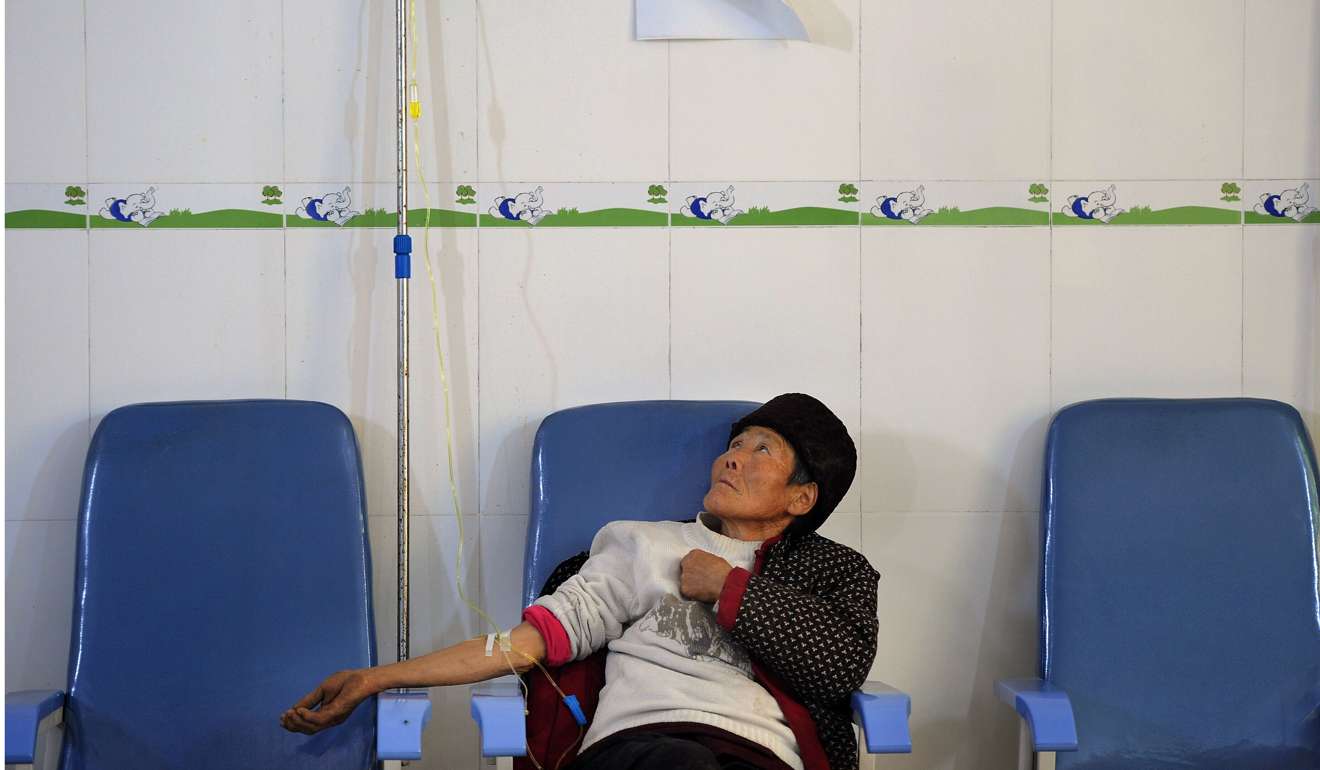
Beijing targets unsafe sex among men in HIV campaign but obstacles remain
Critics say lack of acceptance of gays is the greatest barrier to containing an epidemic which saw 96,000 new cases in first nine months of last year
Beijing aims to spread safe sex awareness among men at risk of contracting HIV as part of its wider push to tackle the spread of the disease.
Critics say, however, any campaign should address the discrimination that patients face in seeking medical care.
In a plan released by the State Council on stopping the spread of Human Immunodeficiency Virus (HIV), the government vowed to have 90 per cent of the high risk population educated about the disease, and lower the mother-to-child transmission to 4 per cent.
The plan, released last month, also aims to lower the rate of infection arising from unsafe sex among men, or MSM, by 10 per cent by the end of 2020.
Sexual transmission accounts for 94 per cent of HIV infections on the mainland. The rate of male homosexual transmission has increased from 2.5 per cent of all contractions in 2006 to 28 per cent of the 96,000 new infected cases recorded in the first nine months of 2016, according to the Chinese Centre for Disease Control and Prevention.
Jing Jun, a professor and director of Tsinghua University’s Aids policy research institute, said transmissions among gay males were “spiking”, and that one in 10 men who had sex with men aged between 25 and 55 in the mainland’s big cities were HIV carriers. Only about half of gay men in Beijing used condoms consistently, according to a study published in the Chinese Medical Journal in 2016.
“As opposed to infections through drugs and prostitution, safe sex among men is not something you can put into law. It will only work with the cooperation of gay groups,” Jing said.

Homosexuality is still considered taboo in mainland society, even though people are more open to discussing it.
Chen Zhiwei, founding director of the Aids Institute at the University of Hong Kong, said the growing proportion of MSM among the Aids population was a global trend and that China was recording worrying statistics. “MSM infection is where the real epidemic is. It is the major problem for China in its public health policies today,” Chen said.
Despite acknowledging that provincial authorities had begun discussions with local gay rights groups and other non-governmental organisations to address the issue, Chen agreed that “overall acceptance [of homosexuals] is a challenge”.
Xiao Dong, a spokesman for the NGO China Rainbow Health Organisation, said raising health awareness among high-risk groups was difficult as the government had not done enough to counter the social stigma against HIV patients.
Xiao’s group has launched 13 campaigns on the mainland to get in touch with Aids patients whose medical treatments were delayed, or who had been turned away by medical institutions when they learned of their infection.
Even though the government has ordered hospitals to treat HIV patients as ordinary patients, Xiao said they were often shunted around different hospital departments.
“Most often they will end up in the department of infectious diseases, even if they were suffering from bone fracture, which is completely unrelated to their HIV-positive status,” he said.

